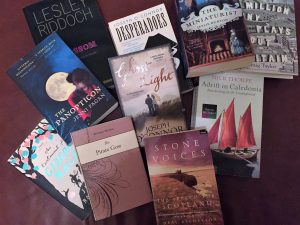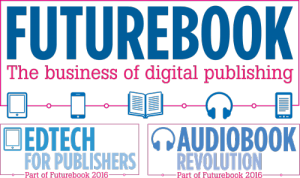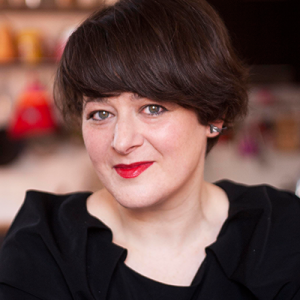The launch of a book, especially one that kick starts an author’s writing career, is undoubtedly a special occasion. This was certainly the case on the 2nd of February when Cranachan Publishing, who began their publishing journey in early 2016, launched Ross Sayers’ ‘Mary’s The Name’ to a room filled with a bustling crowd and festive atmosphere.
To celebrate the book’s release, which follows the story of an 8-year old girl on the run with her Grandpa, Cranachan Publishing hosted a lively night of music, food, drink and a charismatic interview with the author. The night was a sell-out, demonstrating that small publishers can certainly put on a big show.
This is a scenario you’re likely to come across in venues across the UK, as book events are increasingly popular. In the next couple of months there are at least 260 book events taking place across the country.* Of course, there always have been events to pull in crowds, but with the introduction of technology that encourages virtual events- such as Twitter Q+As with authors and online tours- it’s encouraging to see how physical and digital events fall hand-in-hand with each other instead of one coming out on top.
The success of #ScotLitFest, the largest online-only book festival launched in 2016, shows there is clearly a demand and an audience for virtual book-events, most likely because of how convenient and easily accessible they are. Thankfully, the popularity of physical events doesn’t seem to have wavered despite the demand, and last year’s launch and immediate success of Harper Collins’ ‘BookGig’ illustrates this.
BookGig is an online resource that allows you to enter your postcode to see what bookish events are coming up near you, allowing you to buy tickets and find out more about the event. This makes it easier to find events close and convenient to you, helping spread the word and drawing crowds to events they might have potentially missed out on. The importance of the prominent presence of physical book events is demonstrated in a comment from Brian Klems of Writer’s Digest:
‘Although today’s virtual world allows authors to connect with their audience without ever leaving their house, virtual communication cannot replace the physical experience of sharing your book and knowledge with a room full of real people at a book signing. Successful book signings help drive word of mouth, move books, built your credibility and platform as an author, speaker and expert in your field and allow you to get a true-life sense of your audience.’
The roaring success of the Mary’s The Name book launch in Stirling truly represents the popularity of physical book events across the UK. With the introduction of successful and easy to use resources making them more accessible, it’s a positive sign of times to come for events in the publishing industry.
Cranachan publishing can be found on Twitter, as well as BookGig.
*Stats from BookGig











